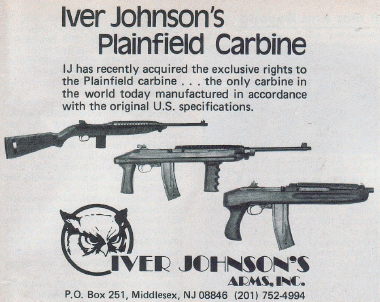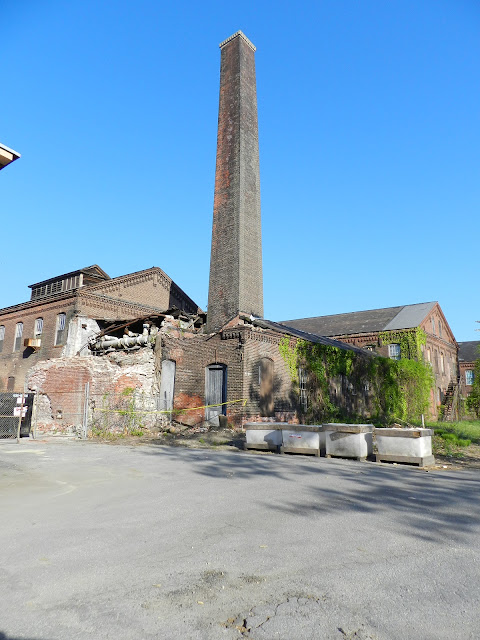This month we take a look at Iver Johnson's Arms and Cycle Works.
The story of Iver Johnson's Arms and Cycle Works begins with the man whose name the company bore.
The year was 1841, the place was Norfjord, Norway.
At the age of 16 Johnson began an apprenticeship with a gunsmith in Bergen, Norway and at 21 he opened his own gun shop in the town of Christianna.
In 1862 the United States was deep in a Civil War, we don't know if Johnson was recruited to move to the U.S. or he saw the demand created by war and sought to exploit it. Either way he emigrated to the U.S. and settled in Worcester, MA where he found employment at Allen and Wheellock.
While at Allen & Wheellock Johnson worked on the many pistols designed by Ethan Allen, many of those designs were under constant threat of lawsuit by Rollin White and Smith & Wesson (both Smith & Wesson were former employees at Allen & Wheellock).
By 1975 the company's production was moved to Jacksonville, Arkansas and was now owned by Lynn Lloyd and Lou Imperato. The later went on to form the Henry Repeating Arms Company with his son Anthony.
After the Civil War, Johnson opened his own gunsmithing business in Fitchburg, MA. In 1871 he merged with another local gunsmith named Martin Bye. They formed the Johnson & Bye Company to make improvements to the pepperbox revolvers that were very common then.
A Johnson & Bye 7 shot 22 revolver
In 1873 Colt introduced their Single Action Army revolver, this was due to the White patent expiring, the door was opened for cartridge revolvers and the pepperbox became passe.
Johnson and Bye switched to making small revolvers and single shot "Derringers" for personal defense. This was when the "Saturday Night Special" was invented. Small, easily concealable and inexpensive handguns for the traveler, gambler and "sporting lady". They also began looking for new products to manufacture including toy guns, strollers as well as handcuffs and leg irons.
One product that began to catch on for them was bicycles (as well as tricycles).
The business partnership was dissolved in 1882 and Johnson changed the name of his company to "Iver Johnson & Co Revolvers". It was during this time that Oscar Frederick Mossberg went to work for Iver Johnson, building bicycles. He later formed OF Mossberg & Sons to build pistols and shotguns.
By 1888 Johnson had gained his U.S. citizenship and two years later began using the owl's head as his company's logo.
In 1891 Johnson moved his company to a new campus of buildings on river street in Fitchburg, where the company remained until 1975.
In 1894 Johnson purchased a Bicycle shop and changed his company's name once more to "Iver Johnson Arms & Cycle Works".
That following year Iver passed away, leaving his three sons, Frederick, Walter and John to take over.
They continued the path their father had started and even moved into motorcycles after the turn of the century.
In the early part of the 20th century, firearms demand grew significantly, and the brothers divested the cycles from their manufacturing concerns.
In the pre-WWI years the company went public and took on a number of investors, which led to the brothers being ousted from leadership positions within the company.
WWI provided opportunities for arms as well did the increase in crime that came during the Great Depression. WWII of course keep the doors open. While Johnson didn't get lucrative military contracts, the companies that did were somewhat diminished as competitors for the civilian market.
The company continued to sell its famous "Safety Automatic" revolver through the 50's and 60's, but competition led to declining sales and in 1971 new owners moved the company HQ to New Jersey it was also around this time that the company acquired the rights to the Plainfield M-1 Carbine, producing it both as a long arm and a pistol.
By 1975 the company's production was moved to Jacksonville, Arkansas and was now owned by Lynn Lloyd and Lou Imperato. The later went on to form the Henry Repeating Arms Company with his son Anthony.
By 1993 current owners of the Iver Johnson trademark (American Military Arms Corp.) were no longer using the name
Legacy
nearly 6 million Safety Automatic revolvers were made, the transfer bar safety used in the Iver Johnson revolver is now used in virtually all revolvers.
Unfortunately, Iver Johnson made revolvers that were used in two high profile assassinations. The first being the assassination of Republican President William McKinley in 1901 with an Iver Johnson 32 caliber revolver.
Then in 1968 former Attorney General and Presidential candidate Robert Kennedy was assassinated in Los Angles with an Iver Johnson .22 caliber Cadet revolver.
While doing research I found several addresses for Iver Johnson in Fitchburg, all of them on River Street:
21 River Street
129 River Street
140 River Street
186 River Street
192 River Street
306 River Street
343 River Street
It is not uncommon to find addresses on literature that no longer exist, either because the way in which addresses were assigned changed or due to construction, flooding, etc the place in which an address could exist is no longer so.
21 River Street is one such address, 129 seems off as it is the only other one that is an odd number (assuming they put odd on one side and even on the other)
The 140, 186 and 192 addresses are close enough to the factory to seem like they are or were correct.
The 306 River Street was a genuine address of an old building and could have been the first home of Iver Johnson's company in Fitchburg or perhaps the cycle shop that they purchased in 1894.

after Iver Johnson moved out, Heywood Chair co, followed by a slew of others occupied the buildings.
21 River Street
129 River Street
140 River Street
186 River Street
192 River Street
306 River Street
343 River Street
It is not uncommon to find addresses on literature that no longer exist, either because the way in which addresses were assigned changed or due to construction, flooding, etc the place in which an address could exist is no longer so.
21 River Street is one such address, 129 seems off as it is the only other one that is an odd number (assuming they put odd on one side and even on the other)
The 140, 186 and 192 addresses are close enough to the factory to seem like they are or were correct.
The 306 River Street was a genuine address of an old building and could have been the first home of Iver Johnson's company in Fitchburg or perhaps the cycle shop that they purchased in 1894.

after Iver Johnson moved out, Heywood Chair co, followed by a slew of others occupied the buildings.
As of this writing the buildings (most of them) still stand
In 2016, the smoke stack and surrounding structure were torn down
References
The Cabe
Old Bike
Fitchburg, MA
Rock Island Auction
Goforth, W. E. (2006). Iver Johnson's arms & cycle works firearms 1871-1993. Hudson, WI: Gun Show Books Pub.
In 2016, the smoke stack and surrounding structure were torn down
References
The Cabe
Old Bike
Fitchburg, MA
Rock Island Auction
Goforth, W. E. (2006). Iver Johnson's arms & cycle works firearms 1871-1993. Hudson, WI: Gun Show Books Pub.

























Another informative article, I have an IJ Model X I am restoring. They are a neat little rifle.
ReplyDeleteThe 306 River Street Is correct location as the subsequent Heywood [alternate spelling Hayward] Chair co. Hayward a surname within the infamous Avery Family… which also connects Allen and Wheellock AND FITCHburg as was Oscar FREDERICK Mossberg, too.
ReplyDelete